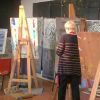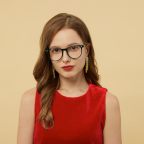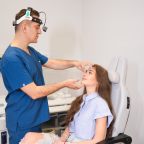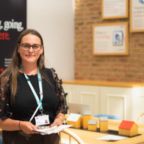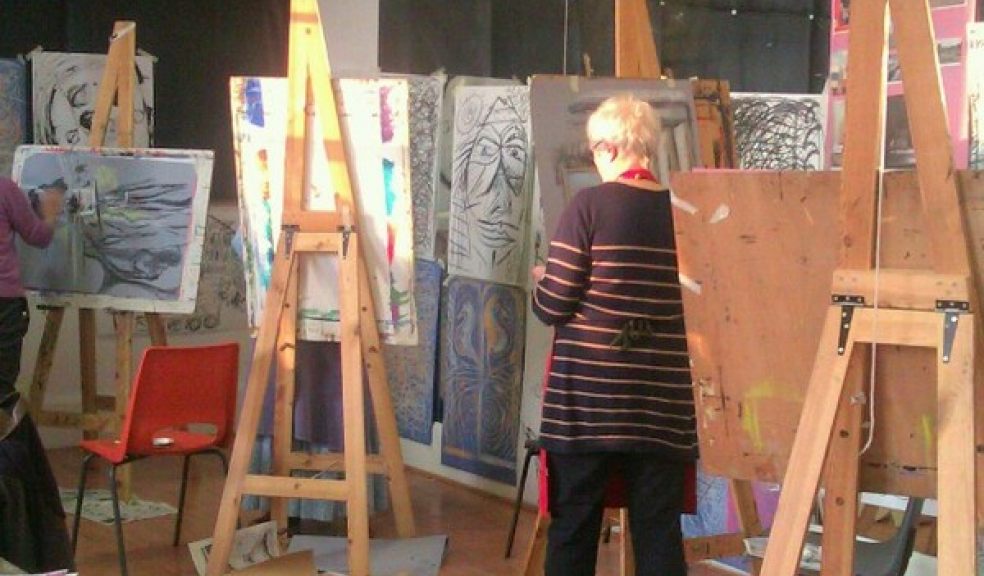
'Experimental Drawing' workshop at Exeter Phoenix
Offered the opportunity by Exeter Phoenix to take part in a new one-day workshop at the lively arts centre and write about it for The Exeter Daily, I agreed with alacrity. I signed up for 'Experimental Drawing' thinking it might give my drawing practice the kick-start it needed.
The group of ten who gathered on Monday morning came with widely differing experience and expectations. ‘Experimental’ could sound intimidating, but at least one participant interpreted it as open to those with little technical expertise. This proved to be true as there was no assumed knowledge and no negative criticism from Nicci Wonnacott our tutor.
As we were encouraged by Nicci to start by ‘scribbling’ with charcoal on huge sheets of paper, on equally huge easels, I found it initially liberating, the word scribble alleviating anxiety about mistakes or correctness. For Nicci, there is no ‘right’ or ‘wrong’ in art. Mistake making is OK and even creative.
Then we were asked to turn our drawings around to face the group (I had retreated to a corner!) And suddenly the comparison with others kicked in … Mine seemed too simple – others had scribbled ‘proper’ designs, even identifiable images, was I ‘right’ or ‘wrong’? Despite years at art school I was still subject to these feelings of uncertainty, as I later discovered others were.
Next, scribbling in chalks with both hands at once, strange, but enjoyable, I experimented by mirroring lines and patterns and crossing hands, developing a rhythm that became almost musical. One student said she ‘hated scribbling as it felt naughty’. As we shared our work this time, each person spoke about their experience and intentions and we began (perhaps) to trust that all our work was valuable. Nicky found delight in each person’s work, commenting, very specifically as a good teacher should, about aspects of the drawings: line, detailed marks, use of tone, quirkiness and meaning. She used these examples to make connections with art history too.
The experimental element became more obvious as we were given long willow sticks and black ink to draw with. This seemed challenging enough, until we saw a still life placed on the table to draw – surely too difficult! Japanese lantern flowers and oranges: beautiful against a white background. A student commented, echoing my own thoughts, that when she saw the still life she thought ‘now I should draw representationally’.
Despite this rather alarming task, some beautiful drawings emerged, some very bold and three-dimensional, others more delicate, but everyone had managed to use this medium, which encouraged the whole body to engage with the drawing. The sharing of work was definitely feeling more positive, though my comparatively timid results still disappointed me, others’ comments and Nicky’s were encouraging and supportive and we began to incorporate some of what we saw into our own work, thanks to Nicci’s facilitation.
This interaction was very much part of the process of the workshop. Nicci told us that for her process is more important than product and interesting discussion followed about the need to communicate to others, or whether it is enough to do it for oneself.
Moving into a more inward mode, Nicci asked us to recollect a place we love, interpreting it as we wished. For some of us the choice was hard to make – lots of thoughts and images rushed through my head – others responded immediately. Gradually we all became involved, being freed up by the previous exercises to explore mark-making and different ways to represent our place. Mine was a river journey through Russia and I lost myself in the drawing process. Our results were stunningly different this time! For some, it was a landscape or a walk, a room, or group of trees; for others thinking about a relationship, or a journey. One incorporated words, as though talking to themselves through drawing.
After lunch we started the final experiment: using an image selected from a magazine stuck onto our paper as a starting point, to elaborate or transform into a drawing using mixed media. I really became absorbed by this, feeling more confident as a landscape emerged. I heard one plea: ‘Nicci I can’t choose - there is too much choice – just tell me where to start!’ Yes, sometimes we want a teacher to limit our choices and tell us what to do, but Nicci wisely resisted, gently encouraging the student to be patient with herself. "I will stop trying to be Hockney or Lowry and be myself!"
Our drawings were in differing degrees satisfying to us, depending on our aspirations, ambition and maybe how we compared ourselves to others. But it was a valuable, well led and intensive day, for me inspiring and I recommend these workshops to others.
Ed's note: The next Experimental Art workshops take place at Exeter Phoenix on 18th February and 18th March - 10.30am-5pm.
Cost: £28 (£24)
For more information about art workshops at Exeter Phoenix click here.










